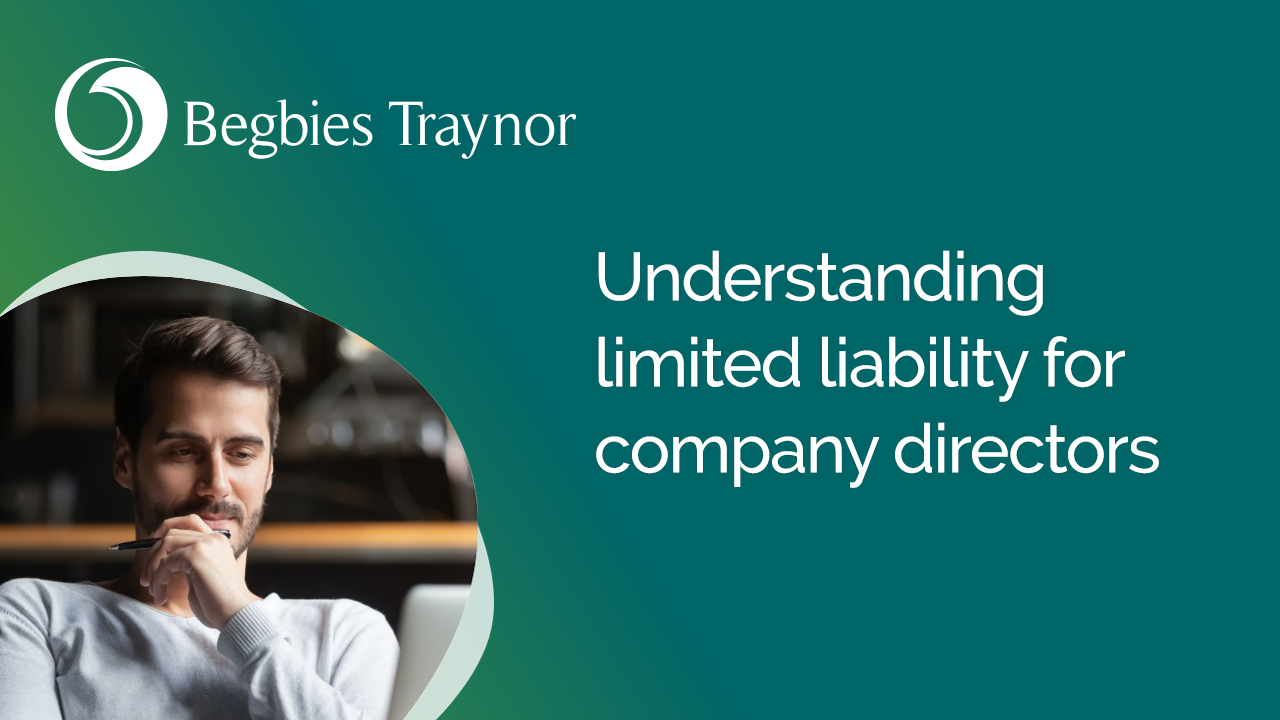
What is a limited liability partnership?

A limited liability partnership (LLP) is a legal business structure. Professional firms such as solicitors and accountants often choose to set up as limited liability partnerships, but the structure can also be a beneficial option for other types of business.
Limited liability partnerships differ from ‘traditional’ business partnerships, and also from the limited company structure, and are regulated by various pieces of legislation including the Limited Liability Partnership Regulations, 2001.

What is the structure of an LLP?
A limited liability partnership is a separate legal entity from its members (partners), who are only liable for the amount of money they invest, plus any personal guarantees. The partnership is incorporated at Companies House, and can only be used by profit-making businesses.
Partners are required to provide a registered address for the business, and maintain a register of members. There’s no restriction on the maximum number of partners allowed but there must be at least two members on incorporation, either individuals or limited companies. It’s also possible to set up an LLP with one individual and a dormant company.
Differences between an LLP and other business structures
Traditional partnerships do not receive the same protection as LLPs, and partners can be held personally liable for debts incurred by the business if it is not incorporated into a LLP. Additionally, clients engage in business with the partners individually rather than the partnership as an entity.
Although limited liability partnerships and limited companies may appear to be similar at first glance, there are significant differences between the two:
- Companies can be limited by guarantee, meaning non-profit organisations can use the structure. LLPs, on the other hand, are solely for profit-making businesses.
- One person can set up a limited company and fulfil the role of shareholder and director. A limited liability partnership must consist of at least two ‘designated’ members who take responsibility for statutory filing and other legal requirements, but there can be an unlimited number of ‘ordinary’ members.
- Limited companies pay corporation tax but members of limited liability partnerships pay income tax through self-assessment.
- The internal structure of a limited company is inflexible, whereas that of an LLP can be changed by its members.
- Limited companies can sell shares to secure capital investment, but limited liability partnerships do not have shares.
How can I set up a limited liability partnership?
If you’re thinking of setting up an LLP, here are a few factors to consider:
Formulating an LLP agreement
The limited liability partnership agreement should set out how the business will operate, including the profit-sharing arrangements, how disputes will be settled, and the responsibilities of members.
Incorporation
You need to choose a business name that is unique and not similar to any other business. A registered address will need to be included on the incorporation document, as well as:
- Details of the designated members
- Details of other members
- The partnership’s main business activities
- A statement of compliance
- A register of People with Significant Control (PSC)
An LLP can be registered electronically, by post, or using a third party formations company.
Who owns the partnership and what are the partners’ responsibilities?
An LLP is owned by its members who have certain responsibilities, including acting in accordance with the partnership agreement. Designated members take on additional responsibilities, which include:
- Registering the partnership for self-assessment, and VAT if applicable
- Keeping proper accounting records
- Preparing and filing annual accounts and an annual confirmation statement with Companies House
- Informing Companies House of any changes to the business, such as the registered office or members’ details
- Appointing an auditor if required
- Acting on behalf of the LLP should it be dissolved or wound up
Advantages of forming a limited liability partnership
If you’re thinking of setting up a limited liability partnership, the structure offers a number of advantages, including:
- Protection of personal assets via limited liability
- Flexibility in terms of management and how profits are shared
- Members can be companies as well as individuals
- Different levels of membership – you can choose the level of your involvement in the business
- The partnership can enter into contracts in its own name
- Tax benefits may be available
Are there any drawbacks to setting up an LLP?
- The partnership’s accounts and financial position are available for public view
- It can be costlier to set up an LLP when compared with a traditional partnership
- The administrative costs are generally higher than a ‘standard’ partnership due to additional accounting and filing requirements
If you’re considering setting up a limited liability partnership and would like more guidance on the process, call our experts at BTG Begbies Traynor. We provide reliable independent advice and will help you establish whether this is the best business structure for your purposes. We offer free same-day consultations, and operate from over 70 local offices.
More BTG Begbies Traynor Articles
Contact the team
Key Contact

You're in Safe Hands
- 35+ Years Experience
- 100+ UK Offices
- Confidential director support
- Insolvency market leader
Article Archive
Article Categories

